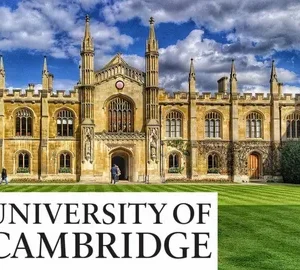
Some professors in Nigeria have insisted that their pay be increased to at least N2.5 million a month, saying that any lower amount is untenable.
This comes as Tunji Alausa, the Minister of Education, acknowledged that a formal agreement was signed in 2009 and retracted his former assertion that there was no legally enforceable agreement between the Federal Government and the Academic Staff Union of Universities (ASUU).
As ASUU members protested the Federal Government’s refusal to implement the renegotiated 2009 FGN–ASUU agreement, demonstrations shook many campuses on Tuesday.
But, speaking with reporters in Abuja on Thursday, the minister had insisted that no agreement existed between the government and ASUU, adding that the union was merely parading a draft, a claim rejected by ASUU.
In a statement released on Friday by the ministry’s Director of Press and Public Relations, Boriowo Folasade, the minister made a U-turn, and acknowledged that the 2009 FGN-ASUU agreement remains the most recent signed and binding document between both parties.
According to the ministry, efforts to update the pact have been made, including the establishment of a renegotiation committee in 2017 under the former Minister of Education, Mallam Adamu Adamu. It explained that the process produced the draft Nimi Briggs Agreement in May 2021, but the Federal Government insists the document was never signed.
According to the statement, efforts to review the agreement began in 2017, when the then Minister of Education, Mallam Adamu Adamu, inaugurated a renegotiation committee.
That process reportedly produced the draft Nimi Briggs Agreement in May 2021, but the government emphasized that it was never formally executed.
“When the Honourable Minister stated that there had been ‘no new signed agreement’ with ASUU, he was referring specifically to the 2021 draft Nimi Briggs document, which has not been formally executed.
“The Ministry therefore reaffirms that the 2009 FGN-ASUU Agreement remains the last formally signed agreement. The 2021 draft serves only as the latest framework for discussions,” the statement read in part.
Professors demand N2.5m salary
Lecturers have long decried poor remuneration and declining conditions in the academic environment.
With professors earning about N500,000 monthly, some have been forced to squat in quarters, while others compete with students for space in buses meant for undergraduates.
According to The PUNCH, records under the Consolidated University Academic Salary Structure showed that Graduate Assistants earn between N125,000 and N138,020 monthly, while professors earn between N525,010 and N633,333.
Assistant Lecturers earn N150,000–N171,487; Lecturer II, N186,543–N209,693; Lecturer I, N239,292–N281,956; Senior Lecturer, N386,101–N480,780; and Readers, N436,392–N522,212.
In separate interviews with Saturday PUNCH, the professors insisted that their salaries should not fall below N2.5m.
A professor at the University of Ibadan, Remi Aiyede, said Nigerian professors were grossly underpaid compared to colleagues in other African countries.
He added that a government-commissioned report had already recommended similar figures.
He said, “If you want to benchmark it across countries, you will see that the monthly pay of an average professor across Africa is between $2,000 and $4,000.
“So, if you break that down to naira, then you will have an idea of what we are talking about. In fact, a million naira is conservative. Professors in Nigeria should not earn less than N2.5m monthly.
After the Nimi-Briggs Commission, there was a committee set up by this government, which looked into the matter. The report was submitted to the President, and if I understand what was written in that document, a professor should be earning about N2.5m.”
At the University of Lagos, Prof. Abigail Ndizika-Ogwezzy of the Department of Mass Communication stressed that professors needed decent pay to deliver effectively.
She lamented that poor conditions were forcing lecturers to overwork themselves.
“Anything less than N2.5m for a professor at the bar is not it; look at the reality. If I want to get a house to live in this Akoka area, it’s not less than N3m per year. Then won’t I feed, pay my children’s fees, ride a good car and even take care of my health? Then when is my reward?
“We are carrying the burden of three, four, five people. It is impacting our health, our eyes. We have to read scripts, prepare notes, do community service, conduct research, publish, and attend conferences. Meanwhile, we are all buying from the same market as private sector workers, yet many lecturers cannot pay their children’s school fees,” she added.
Prof. Sheriffdeen Tela of Babcock University, Ogun State, also backed the N2.5m demand, saying the disparity between professors and political office holders was indefensible.
He said, “If you are saying that a professor receives not less than N1.2m in a month, that means that in a year it’s still less than what the legislature takes home in a month. Some people were advocating N2.5m monthly, and yes, even with the kind of economy that we are in now, it makes sense.
“Many professors live on loans because their salaries are not enough. Instead of giving them appropriate pay, the Federal government wants to give them loans, which is wrong.”
Former ASUU President, Prof. Emmanuel Osodeke, also argued that professors should earn between N1m and N5m monthly.
“If Nigeria truly values education and wants its universities to compete globally, professors must be paid what they are worth. Anything short of this will only worsen the brain drain,” he said.








